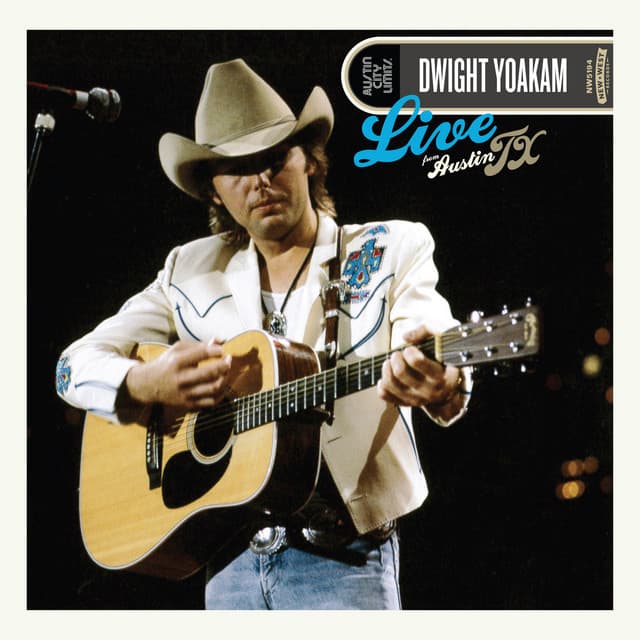
“Little Ways”: The Quiet Heartbreak of Unseen Wounds
There’s a particular kind of ache that only Dwight Yoakam can articulate, a sharp, yet understated pain that pierces through the polished veneer of country music. His distinctive blend of Bakersfield Sound and raw, heartfelt storytelling often leaves a lasting imprint, and few songs exemplify this quite like “Little Ways.” Released in June 1987 as the second single from his critically acclaimed album Hillbilly Deluxe, “Little Ways” quickly became a cornerstone of his early career. It climbed to a respectable No. 8 on the Billboard Hot Country Songs chart and, notably, clinched the No. 1 spot on the Canadian RPM Country Singles chart, solidifying Yoakam’s unique presence in the country music landscape of the late 80s. This wasn’t a flashy, radio-friendly anthem, but rather a slow burn that seeped into the consciousness of listeners who appreciated depth and authenticity.
In a time when much of mainstream country was leaning towards the “Urban Cowboy” aesthetic, Dwight Yoakam was deliberately reaching back, drawing from the wellspring of traditional country, honky-tonk, and the rebellious spirit of acts like Buck Owens. “Little Ways” itself is a prime example of his dedication to this sound. Yoakam penned the song himself, and while there isn’t one specific, widely publicized anecdote about its creation, it’s clear the lyrics sprung from a deeply personal understanding of emotional vulnerability and the subtle, insidious ways in which relationships can inflict pain. He has spoken about writing with the “spirit of Buck Owens” in his head, and you can certainly hear that influence in the song’s straightforward yet poignant lyrical style, coupled with a melody that’s both catchy and melancholic. It’s a reflection of his commitment to a more authentic, roots-driven country sound that resonated deeply with a segment of the audience yearning for something beyond the pop-infused offerings of the era.
The true meaning of “Little Ways” lies in its masterful depiction of quiet suffering within a relationship. The song speaks of the subtle, almost imperceptible habits and actions of a loved one that, though seemingly small, inflict significant emotional damage. “You’ve got your little ways to hurt me,” Yoakam sings, revealing a pain that isn’t loud or dramatic, but rather a constant, gnawing ache. It’s the kind of hurt that’s hidden from the outside world; “To look at you and me no one would ever know / The pain that I’ve endured ’cause I won’t let it show.” This is the anguish of a person who is deeply in love, yet constantly undermined and wounded by the very person they adore. It’s about being “too ashamed to let them know you make me cry,” highlighting the private torment and the societal pressure to maintain a facade of strength. It’s a relatable narrative for anyone who has ever found themselves trapped in a relationship where love is intertwined with a steady stream of emotional blows, delivered not with malice, but with a casual disregard that cuts just as deep.
Dwight Yoakam’s delivery on “Little Ways” is nothing short of iconic. His voice, with its distinctive hiccup and a tremor that conveys both yearning and wounded pride, is perfectly suited to the song’s narrative. He doesn’t belt out the words; he almost whispers them, drawing the listener closer, inviting them to share in the intimacy of his pain. The sparse, yet expertly crafted arrangement, typical of his long-time collaborator Pete Anderson, allows Yoakam’s vocals and the poignant lyrics to shine. The ringing guitars and steady rhythm create a backdrop that is both classic country and undeniably fresh, a sound that carved out its own niche. It’s a song that, even after all these years, resonates with its raw honesty, reminding us that sometimes the deepest wounds are inflicted not by grand betrayals, but by the accumulation of “little ways.” For those of us who came of age with his music, “Little Ways” stands as a testament to Dwight Yoakam’s enduring artistry – a masterclass in conveying profound emotion with understated elegance, leaving an indelible mark on the heart.